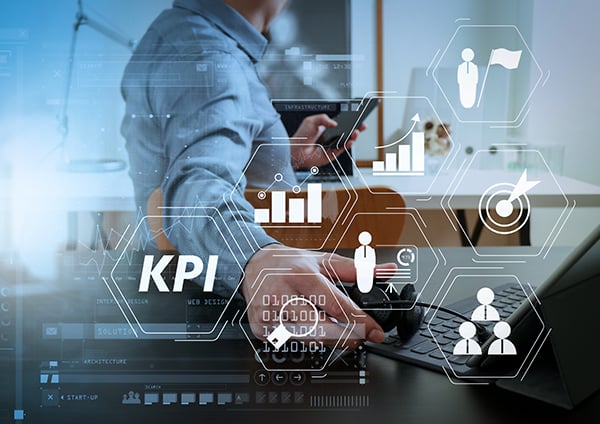
Event Management: The Business of Creating Experiences
Event management is a complex and demanding process that requires meticulous planning, coordination, and execution. From weddings and conferences to trade shows and music festivals, successful event management hinges upon several crucial elements.
In today’s digital age, leveraging advanced tools and technologies such as venue management software and venue booking management system has become essential.
In this article, we will explore the key components of event management with the event management software and highlight the significance of utilizing cutting-edge software solutions to streamline the process and ensure seamless event operations.
Planning and Organization:
Theater event management begins with thorough planning and organization. This phase involves defining the event’s objectives, determining the target audience, and setting the budget. Successful event planners create detailed timelines, establish clear roles and responsibilities for the team, and develop comprehensive event strategies.
Utilizing theater event management software enables professionals to streamline the planning process, manage tasks efficiently, and maintain centralized communication channels.
Venue Selection and Management:
Selecting the right venue is crucial to the success of any event. A well-suited venue can enhance the overall experience, create a positive impression, and accommodate the expected number of attendees comfortably.
Event management professionals can utilize venue management software to search for and compare various venue options based on criteria such as:
- Capacity
- Location
- Amenities
- Pricing
These software solutions provide comprehensive information, including floor plans, availability calendars, and virtual tours, simplifying the decision-making process and ensuring the chosen venue meets the event’s specific requirements.
Marketing and Promotion
Effective marketing and promotion play a pivotal role in driving attendance and creating buzz around an event. Event management professionals employ various marketing strategies, including social media campaigns, email marketing, content creation, and partnerships with influencers or media outlets.
An integrated venue booking management system can seamlessly integrate with marketing platforms, allowing organizers to generate personalized event invitations, track RSVPs, and manage promotional campaigns. Such automation reduces manual efforts and ensures consistent messaging across all channels.
Budgeting and Financial Management
Managing the event budget and financial aspects is a critical component of event management. Event professionals need to track expenses, allocate funds, and ensure financial accountability. Venue management software offers features like budget trackers, expense management tools, and financial reporting capabilities.
These functionalities enable organizers to monitor spending, identify cost-saving opportunities, and generate accurate financial reports to evaluate the event’s profitability.
Registration and Ticketing
Streamlining the registration and ticketing process is vital to ensure a smooth check-in experience for attendees. An efficient venue booking management system enables event planners to create customizable online registration forms, securely process payments, and issue electronic tickets. Additionally, these systems provide real-time attendee data, enabling organizers to monitor registration numbers, track ticket sales, and make data-driven decisions to enhance the overall event experience.
Event Logistics and Operations
Managing event logistics and operations involves coordinating various elements such as transportation, accommodation, catering, audio-visual equipment, and staffing. Venue management software plays a crucial role in optimizing logistics by providing:
- Comprehensive event calendars
- Facilitating communication with vendors and suppliers
- Streamlining equipment and resource management
These tools allow event planners to efficiently manage tasks, schedules, and inventory, reducing the chances of errors or oversights.
On-Site Event Execution:
The day of the event demands meticulous execution and on-site coordination. Event management professionals need real-time access to critical information, including attendee data, seating arrangements, and event schedules. Venue management software offers mobile-friendly interfaces, enabling organizers to access event-related information on the go.
This accessibility facilitates prompt decision-making, enhances communication, and ensures a seamless experience for both event organizers and attendees.
Attendee Engagement and Experience Enhancement
Creating an engaging and memorable experience for attendees is at the core of successful event management. With the help of venue management software, event organizers can leverage features like interactive event apps, live polling, and real-time feedback collection to enhance attendee engagement.
These tools enable participants to actively participate in sessions, network with other attendees, and provide instant feedback, fostering a sense of involvement and satisfaction. By incorporating interactive elements into the event experience, organizers can ensure that attendees leave with a positive impression and a desire to return for future events.
Data Analytics and Insights:
Data-driven decision-making has become essential in the event management industry. Venue management software provides valuable data analytics and insights that can help organizers measure the success of their events and identify areas for improvement.
By analyzing attendee demographics, engagement metrics, and feedback, event professionals can gain a deep understanding of their target audience’s preferences and tailor future events accordingly. Data analytics also allows for effective event marketing strategies, optimizing promotional efforts and maximizing return on investment.
Post-Event Evaluation and Reporting
After the event concludes, it is crucial to evaluate its overall success and gather feedback for future improvements. Venue management software simplifies the post-event evaluation process by automating data collection, generating comprehensive reports, and facilitating post-event surveys.
This feedback loop allows event organizers to assess the event’s effectiveness, identify strengths and weaknesses, and make data-driven decisions for future events. By leveraging technology, event professionals can streamline the evaluation process, save time, and gain valuable insights to continually enhance their event management strategies.
Final Thoughts
In the modern world of event management, VenueArc emerges as a game-changing solution tailored specifically for Theatres and Performing Arts Centers. It empowers professionals to streamline event booking and management processes like never before.
By leveraging the power of VenueArc, event organizers can confidently navigate the complexities of venue selection, seamless event execution, and attendee engagement. With its innovative features and user-friendly interface, Venue Arc event management software sets the stage for a new era of efficient and successful event management in the realm of Theatres and Performing Arts Centers.






